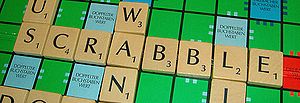
Want to avoid some pitfalls as a newcomer to the personal history business? Read on.
We love our work. Right? But that doesn’t mean we can’t be blindsided by some unsuspected snag. Looking back on my seven years in this work there are a number of things I wish I’d known earlier. Here are just three:
1. Some personal history clients can be darn right disagreeable.
It’s true and I have the scars to prove it.
For the most part, working with people on a personal history project is a satisfying experience. That’s why early on I was lulled into a dream-like state, believing all my clients would be simply wonderful. Wrong! One “client from hell” snapped me out of my reverie.
What did I learn? I now make sure that I only work with clients that are a good fit and that I like. In addition, I’m very clear from the outset about what I will or won’t do. And I always make certain clients sign a contract.
2. Keeping up with changing technologies never stops.
A few years ago I invested several thousand dollars in the latest prosumer camcorder. It was a beauty. Now it’s obsolete. It doesn’t shoot in HD and isn’t flash-based. I’ll soon have to purchase a new camera which will also necessitate an upgrade of my editing software.
It’s not just keeping up with the latest equipment and software. You’ve also got to budget for these upgrades. I’m embarrassed to admit that in this department I’ve been somewhat lax.
What’s the lesson? Build into your production budget a rental fee for your equipment. Make sure that those fees go into a designated new equipment fund. And keep repeating to yourself: “This too will soon be obsolete.”
3. Working in an unregulated profession has it’s disadvantages.
There’s no certification or governing body for personal historians. Some are experienced veterans and others are just starting out. Some charge nothing or very little while others charge thousands of dollars. For potential clients this can be confusing. They may well ask why they should pay you a professional fee when someone down the street is offering a bargain basement deal?
What’s the answer? I’ve learned not to sell myself short and not to be “nickel and dimed” to death. I sell myself on my years of experience as an award winning documentary filmmaker. I promise a professionally produced personal history that my clients will be thrilled with or they get their money back. If they still prefer to go with “Joe” down the street and are happy with a less qualified person and an inferior product, I’m not going to sweat it. Life’s too short.
Conclusion.
So what are some of the pitfalls you’ve faced as a professional personal historian and what did you learn? Love to hear from you!
If you enjoyed this post, get free updates by email.
Photo by iStockphoto
 Not long ago I was asked to audio record some final words from a young mother who was dying from cancer. I’ll call her Sonia to protect the family’s privacy. She was in her early thirties and she wanted to leave something for her only child, a five-year-old boy…Read more.
Not long ago I was asked to audio record some final words from a young mother who was dying from cancer. I’ll call her Sonia to protect the family’s privacy. She was in her early thirties and she wanted to leave something for her only child, a five-year-old boy…Read more.













